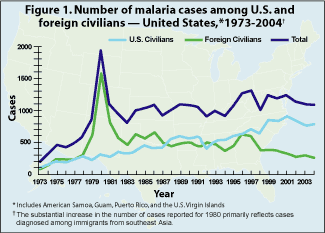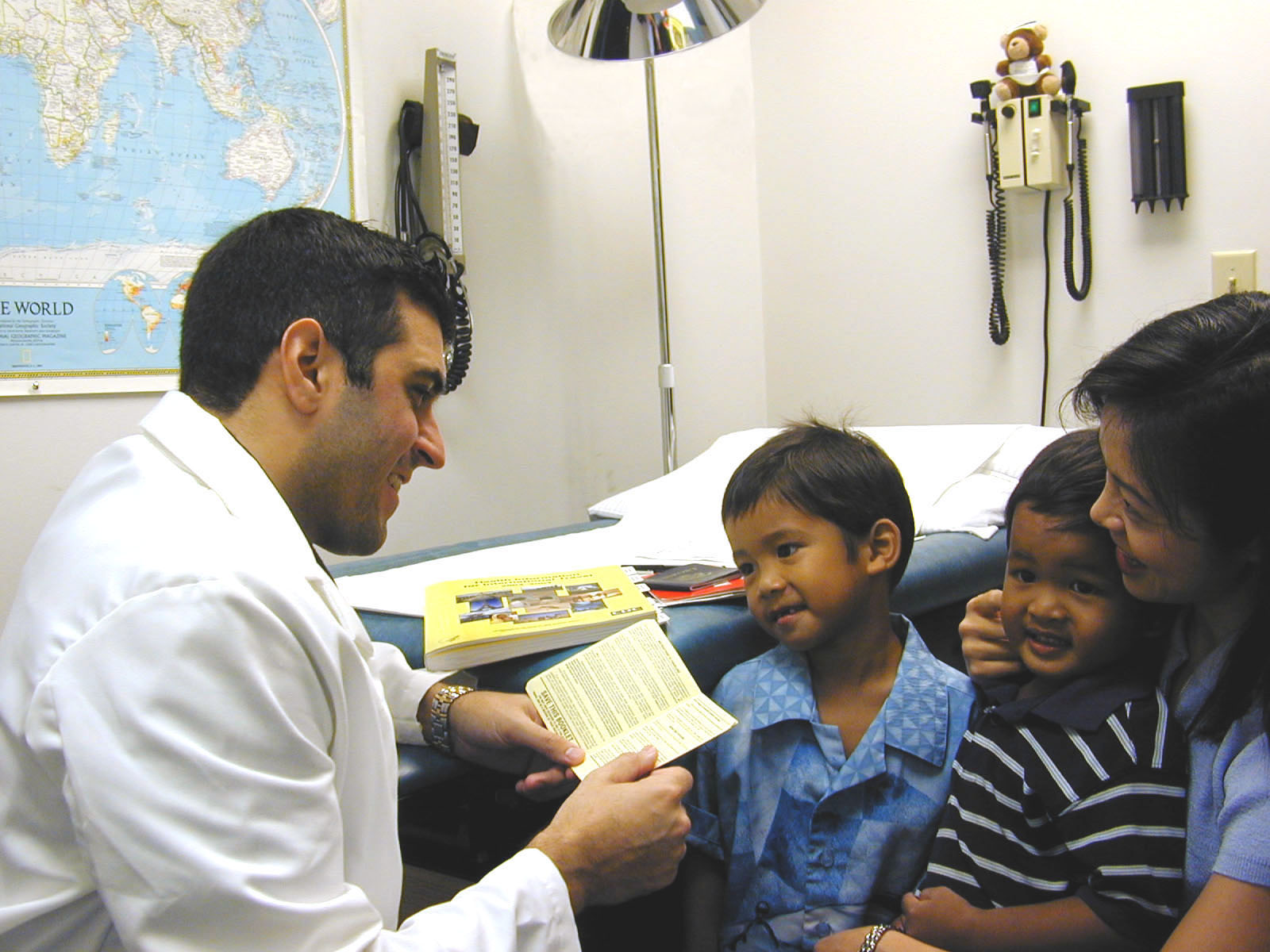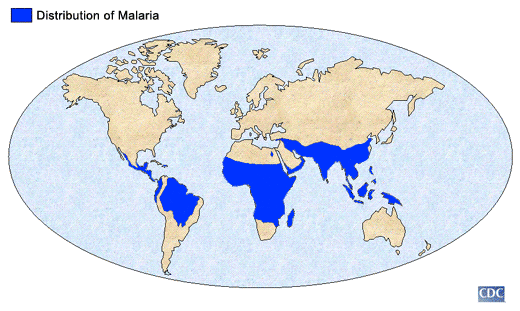 |
 |
| Malaria
Home > |
 |
Latest United States Malaria Disease Surveillance Report -
A Need for Continuing Vigilance
|
 |
Most patients acquire the disease while traveling in malaria-risk areas without taking adequate preventive measures...
|
|
 Number of Malaria cases among U.S. and foreign civilians, by year, 1973 to 2004.
(CDC graph) Number of Malaria cases among U.S. and foreign civilians, by year, 1973 to 2004.
(CDC graph) |
 |
Even though malaria has been eradicated from the United States since 1951, U.S. residents remain at risk, especially when traveling in malaria-endemic countries.
CDC released recently its Malaria Surveillance Summary for 2004. Domestic malaria surveillance helps CDC provide recommendations to keep travelers healthy and can identify episodes of malaria transmission in the United States.
CDC received reports of 1,324 cases of malaria, with four deaths, that occurred in 2004 in the United States. All but four cases were in persons who had traveled to a malaria-risk area. Of the four cases in persons who had not traveled to a malaria-risk area, three were caused by congenital transmission (from mother to fetus).
|
 |
| Malaria-risk areas in the world. In 2004, of 1,190 U.S. imported cases of malaria with known region of acquisition, 68% were acquired in Africa. Countries where the highest numbers of cases were acquired were Nigeria (278 cases), India (113 cases), and Ghana (95 cases). (CDC graph) |
 |
Prevention in Travelers
Malaria can be a fatal disease for travelers. But it can be prevented by taking one of the recommended chemoprophylactic drug regimens appropriate for the region of travel, and by using personal protection measures to prevent mosquito bites.
The surveillance summary shows that among the U.S. civilians who acquired malaria abroad, almost 90% had taken either no prophylaxis, or prophylaxis regimens that differed from those recommended by CDC. Travelers should take the recommended antimalarial drug at the correct doses, and for the entire recommended course.
The surveillance summary also shows that more than half (53%) of the U.S. civilians who developed malaria were immigrants living in the United States who had returned to their country of origin to visit friends and relatives. This group of travelers and their healthcare providers need to be more aware of the importance of chemoprophylaxis and other protective measures.
Travelers can obtain recommendations from CDC concerning malaria prevention by calling 1-877-FYI-TRIP or by accessing CDC’s Web sites on Travelers' Health and on Malaria.
Early Diagnosis and Treatment
 |
 |
 |
Malaria is a potentially fatal disease that can be prevented and treated. All travelers to a malaria-risk area (including travelers who return to their country of origin to visit friends and relatives) should visit a travel clinic 4-6 weeks before travel, for advice about how to prevent malaria and prescriptions for antimalarial drugs. (CDC photo)
|
 |
Malaria infections can be fatal if not diagnosed and treated promptly. Any person who has been to a malaria-risk area and who develops fever or influenza-like symptoms within the year after travel should seek medical care immediately and report their travel history to their healthcare provider.
Healthcare providers should elicit a travel history from all patients who present with symptoms consistent with malaria. Clinicians seeking assistance with the diagnosis or treatment of patients with suspected or confirmed malaria should call the CDC Malaria Hot Line at 770-488-7788 during regular business hours, or the CDC Emergency Operations Center at 770-488-7100 during evenings, weekends and holidays. The CDC malaria Web site provides additional information on diagnosis and treatment of malaria.
Congenital Malaria
One newborn and two infants were diagnosed with congenital malaria in 2004. In congenital malaria, an infected mother transmits parasites to her fetus shortly before or during delivery, and the newborn may develop the disease days or weeks later. Healthcare providers should obtain a complete travel and immigration history from pregnant women, as well as a history of any febrile illnesses or confirmed episodes of malaria. When caring for pregnant women who have traveled to or immigrated from a malaria-risk area, or who have a past history of malaria, clinicians should remain alert to the possibility of congenital malaria.
Malaria Outbreak in Dominican Republic
In November 2004, the domestic surveillance system detected three cases of malaria in U.S. travelers returning from urban (Duarte Province) and resort areas (La Altagracia Province) in the Dominican Republic which were previously thought to be nonmalarious. Through global surveillance networks, an additional 14 cases were reported in travelers returning to Canada and Europe. In response to this outbreak, CDC expanded its recommendations for chloroquine prophylaxis to include the affected areas. Effective surveillance can detect cases of malaria acquired in presumed nonmalarious areas and thus better protect travelers. As of May 2006, chemoprophylaxis with an appropriate anti-malarial medication is still recommended for the resort areas of La Altagracia Province.
Page last modified : May 26, 2006
Content source: Division of Parasitic Diseases
National Center for Zoonotic, Vector-Borne, and Enteric Diseases (ZVED)
|
 |
|





